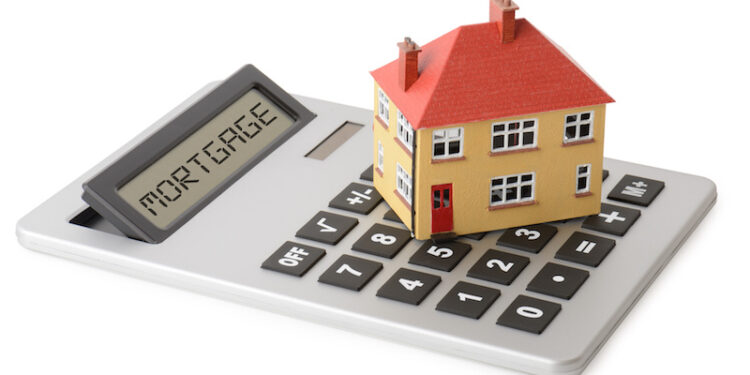Introduction
Real estate financing plays a crucial role in the success of property transactions in Maryland. Whether you are a first-time homebuyer, an investor, or a seasoned real estate professional, understanding the ins and outs of real estate financing is essential. In this blog post, we will explore key strategies that can help you master real estate financing in Maryland. From mortgage options to credit requirements, we will provide valuable insights to ensure your real estate ventures are successful.
The Importance of Real Estate Financing in Maryland
When it comes to real estate transactions in Maryland, financing is a key component. Understanding the importance of real estate financing will help you make informed decisions and maximize your investment opportunities. From purchasing your dream home to expanding your property portfolio, having a solid grasp of real estate financing is crucial. Let’s dive into the various types of real estate financing available in Maryland.
Types of Real Estate Financing Available in Maryland:
Maryland offers a range of financing options to suit different needs and budgets. These include conventional mortgages, FHA loans, VA loans, and USDA loans. Conventional mortgages are offered by private lenders and require a down payment and good credit score. FHA loans, insured by the Federal Housing Administration, are popular among first-time homebuyers due to their lower down payment requirements. VA loans are available for veterans and active-duty military personnel, offering attractive terms and flexible credit requirements. Lastly, USDA loans cater to rural homebuyers with low to moderate incomes. Understanding the different types of financing available will help you choose the most suitable option for your real estate endeavors.
Choosing the Right Mortgage Option
When selecting a mortgage, it’s essential to consider factors such as interest rates, loan terms, and closing costs. Mortgage interest rates can vary depending on the lender and the type of loan. Conduct thorough research and compare rates from multiple lenders to secure the most favorable terms. Additionally, understanding loan terms and associated fees, such as closing costs, will help you make an informed decision and avoid surprises down the line.
Credit Requirements for Real Estate Financing
Your credit score plays a significant role in securing favorable real estate financing in Maryland. Lenders evaluate your creditworthiness based on factors such as payment history, outstanding debt, and credit utilization ratio. To improve your credit score, ensure timely bill payments, reduce debt, and maintain a healthy credit utilization ratio. Regularly checking your credit report for errors and rectifying them promptly is also crucial.
Understanding Down Payments and Closing Costs
When purchasing a property, you’ll need to budget for down payments and closing costs. Down payments typically range from 3% to 20% of the property’s value, depending on the loan type. Closing costs include fees for appraisals, inspections, title searches, and other services. By planning and saving for these costs in advance, you’ll be well-prepared for your real estate financing journey.
Tips for Improving Your Credit Score
Improving your credit score is a gradual process, but it’s worth the effort. Start by paying your bills on time, reducing your credit card balances, and avoiding new debt. Keep your credit utilization ratio below 30% and refrain from closing old credit accounts. These simple steps can have a significant impact on your creditworthiness and increase your chances of securing favorable real estate financing in Maryland.
Exploring Government Programs for Real Estate Financing
Maryland offers various government programs to support homebuyers and real estate investors. These programs aim to provide assistance with down payments, closing costs, and affordable loan options. Research state and local programs, such as the Maryland Mortgage Program, which offers low-interest loans and down payment assistance. By exploring these programs, you may find additional resources to make your real estate financing journey more accessible.
Working with Real Estate Professionals
Partnering with experienced real estate professionals, such as real estate agents and mortgage brokers, can greatly benefit your real estate financing journey. These professionals have extensive knowledge of the local market and can guide you through the financing process. They can help you find suitable properties, connect you with reputable lenders, and negotiate favorable terms on your behalf.
Strategies for Negotiating Favorable Loan Terms
Negotiating loan terms is an essential skill when it comes to real estate financing Maryland. Work closely with your lender to understand the available options and negotiate favorable terms. Factors such as interest rates, loan duration, and prepayment penalties can significantly impact your overall financing costs. Don’t hesitate to ask questions, compare offers from multiple lenders, and seek professional advice to secure the best possible terms.
Exploring Alternative Financing Options
In addition to traditional mortgages, alternative financing options can offer unique opportunities for real estate investors. Consider exploring options such as hard money loans, private lending, and crowdfunding platforms. These alternatives can be especially useful for investors looking to finance fix-and-flip projects or purchase properties that may not meet conventional lending criteria.
Evaluating the Risks and Rewards
Real estate financing involves both risks and rewards. It’s crucial to evaluate the potential risks associated with your investment and ensure you have a clear understanding of the expected returns. Conduct thorough market research, assess property values, and evaluate rental demand if you’re considering investment properties. By weighing the risks and rewards, you can make informed decisions and mitigate potential pitfalls.
Building a Strong Financial Profile
A strong financial profile is essential for securing favorable real estate financing terms. Maintain a stable income, pay down debts, and avoid excessive new credit applications. Demonstrating financial stability and responsibility will enhance your credibility with lenders and increase your chances of approval. Regularly review your financial situation and take steps to improve your profile as needed.
Staying Informed and Updated
The real estate financing landscape is ever-changing. Stay informed about the latest market trends, interest rates, and lending regulations. Regularly check for updates from reputable sources, attend industry events, and network with professionals in the field. By staying informed and updated, you’ll be well-equipped to navigate the dynamic world of real estate financing in Maryland.
Conclusion
Mastering real estate financing in Maryland is a valuable skill for both homebuyers and investors. By understanding the available financing options, credit requirements, and strategies for negotiating favorable terms, you can navigate the real estate market with confidence. Remember to work with knowledgeable professionals, evaluate risks and rewards, and continuously improve your financial profile. With these key strategies revealed, you are well on your way to achieving success in the world of real estate financing in Maryland.


















